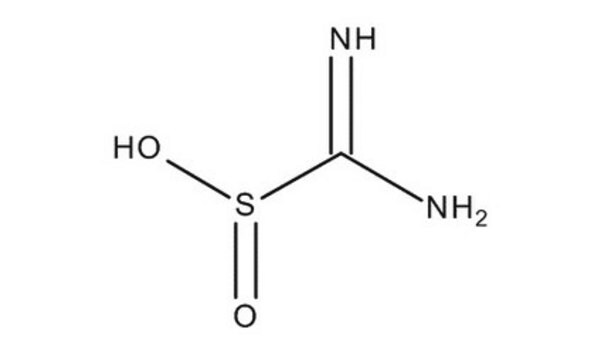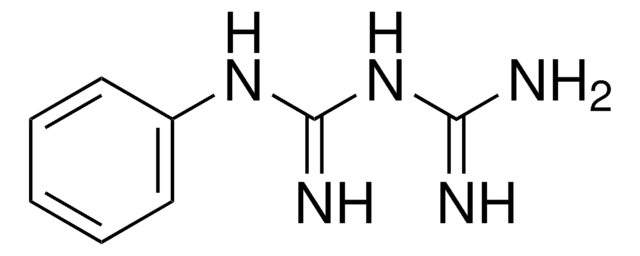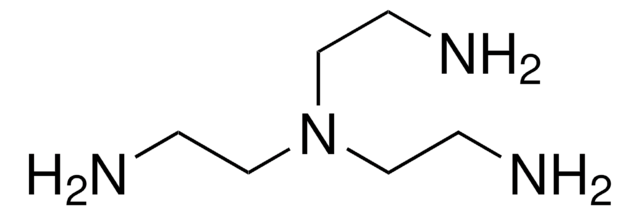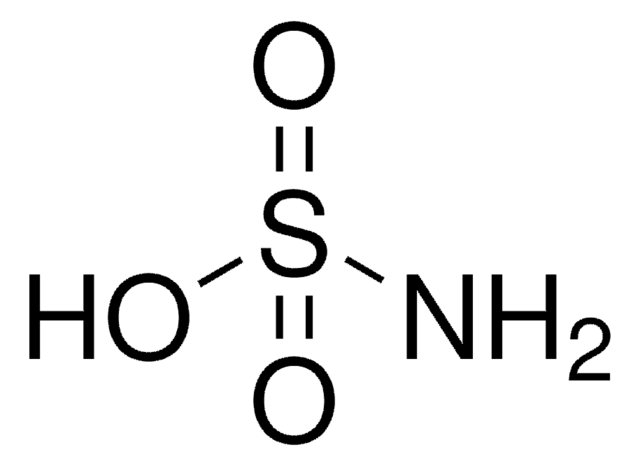F16001
Formamidinesulfinic acid
≥98%
Synonym(s):
Aminoiminomethanesulfinic acid, Thiourea dioxide
About This Item
Recommended Products
Quality Level
assay
≥98%
mp
124-127 °C (dec.) (lit.)
storage temp.
2-8°C
SMILES string
NC(=N)S(O)=O
InChI
1S/CH4N2O2S/c2-1(3)6(4)5/h(H3,2,3)(H,4,5)
InChI key
FYOWZTWVYZOZSI-UHFFFAOYSA-N
Looking for similar products? Visit Product Comparison Guide
Application
signalword
Danger
Hazard Classifications
Acute Tox. 2 Inhalation - Acute Tox. 4 Oral - Eye Dam. 1 - Self-heat. 1 - Skin Irrit. 2 - STOT RE 2 - STOT SE 3
target_organs
Lungs, Respiratory system
Storage Class
4.2 - Pyrophoric and self-heating hazardous materials
wgk_germany
WGK 1
ppe
dust mask type N95 (US), Eyeshields, Gloves
Choose from one of the most recent versions:
Already Own This Product?
Find documentation for the products that you have recently purchased in the Document Library.
Customers Also Viewed
Our team of scientists has experience in all areas of research including Life Science, Material Science, Chemical Synthesis, Chromatography, Analytical and many others.
Contact Technical Service






![Tris[2-(dimethylamino)ethyl]amine 97%](/deepweb/assets/sigmaaldrich/product/structures/695/792/ee0ff167-22a3-43a7-83a1-6c4908adf0ae/640/ee0ff167-22a3-43a7-83a1-6c4908adf0ae.png)








